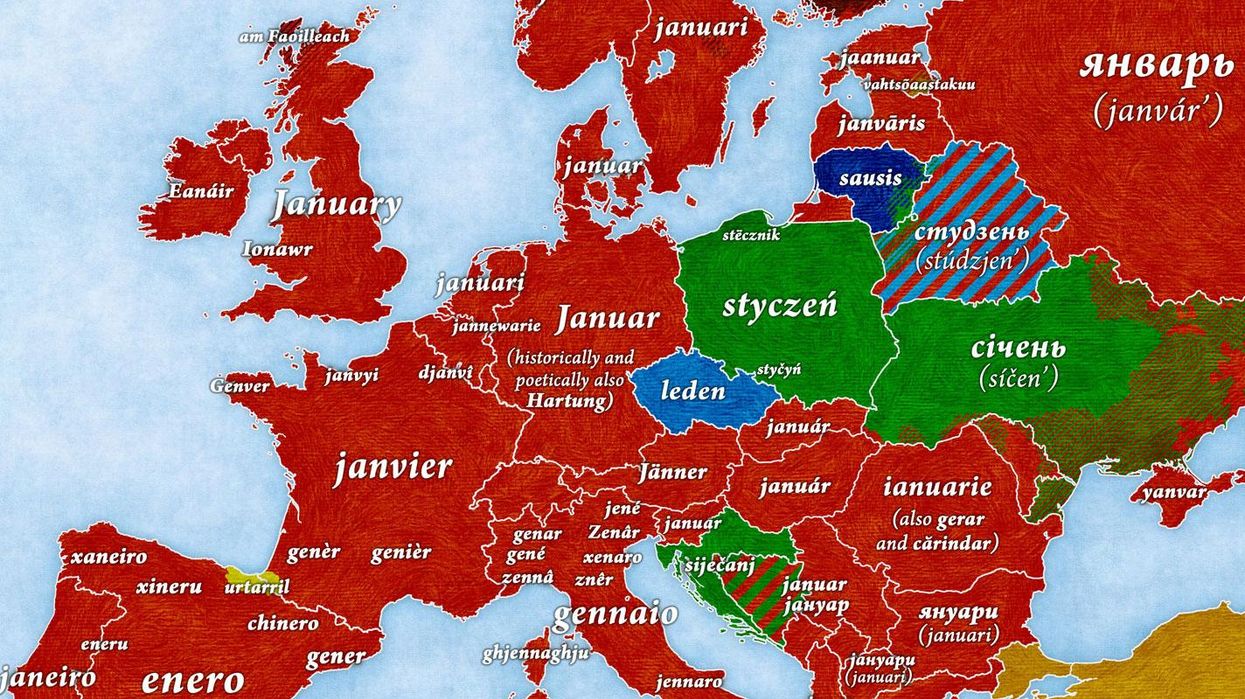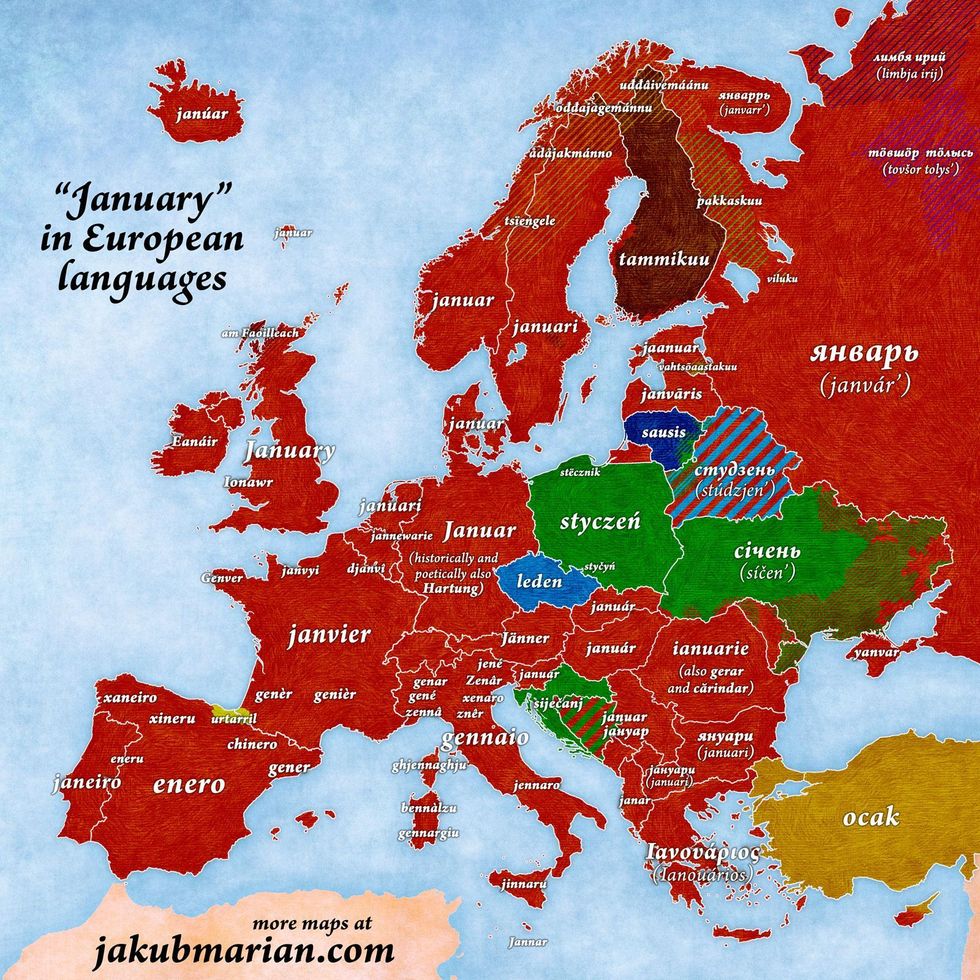Viral
Mimi Launder
Jan 03, 2018

Picture:
Jakub Marian
Europe may be entering the New Year still pretty much as one - but not much unites the continent when it comes to actually saying 'January'. Or 'januar', 'janvier' or, indeed, 'styczeń'.
Cartographer Jakub Marian - who also brought us European maps showing the age of consent, the age of prostitution and how to say 'Merry Christmas' - has mapped how people across Europe say 'January'.
It turns out that European words for the first month of the year have pretty wide-spread roots.

The English 'January' comes from the Latin 'ianuarius', which means 'of Janus', the Roman god of doorways, gates transitions, beginnings and endings, according to Marian.
Other European languages - shown in red in the map - share this derivitive.
Further East, in green, the Polish, Ukrainian and Croatian words 'styczeń', 'січень' and 'siječanj' share roots - the Proto Slavic '*sěčьńь', which referred to a time when trees were being cut down.
Here are some more etymologies:
- In blue, Czech 'leden' from 'led' (meaning 'ice')
- In turquoise, Belarusian студзень from a Slavic root for 'cold'
- In dark blue, Lithuanian 'sausis' from 'sausas' (meaning 'dry')
- In black, Scottish Gaelic 'Gaoilleach' from 'faol' (meaning 'wolf') and 'teach' (meaning 'burrow')
- In ochre, Turkish 'ocak' (meannig 'stove, fireplace', which we can all get on board with in January)
- In brown, Finnish tammikuu from 'tammi' (meaning 'heart, core') and 'kuu' (meaning 'month') as January comes in the middle of winter.
- In yellow, Basque 'urtarril' from 'urte' (meaning 'year'), 'berri' (meaning 'new') and 'hil' (meaning 'month')
And, no, 'more maps at jakubmarian.com' is not how you say 'January' in any North African language.
More: How much alcohol people drink around the world, mapped
Top 100
The Conversation (0)













